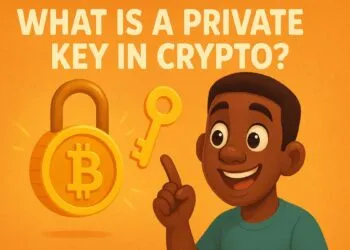Crypto giveaway scam have evolved into one of the most dangerous and deceptive threats in 2025, often tricking even experienced investors. If you’ve ever seen a tweet or livestream claiming, “Send 1 ETH and receive 2 ETH back!”, you’ve already encountered the most common form of this fraud. In this article, we’ll explain what is a crypto giveaway scam, how it works, why it’s still so effective, and how to protect yourself.
Table of Contents
ToggleWhat Is a Crypto Giveaway Scam?
A crypto giveaway scam is a fraudulent scheme where scammers pose as reputable individuals or companies, claiming to offer free cryptocurrency in exchange for a small payment upfront. The scam usually plays on urgency or exclusivity: “Limited offer!”, “Only the first 100 participants!”, or “Live now with Elon Musk!”.
While real giveaways do happen in the crypto world, especially during project launches or marketing campaigns, they never ask for funds upfront. The moment you’re asked to send tokens in exchange for a bigger reward, it’s a scam.
These schemes often impersonate big names in tech or crypto—like Vitalik Buterin, Elon Musk, or major exchanges such as Binance—using fake accounts, hacked profiles, or paid ads to look legitimate.
How Crypto Giveaway Scams Work
Most scams follow a predictable pattern:
- Platform choice: They usually appear on platforms with large crypto audiences like Twitter (X), YouTube, Telegram, or even Facebook Ads.
- Impersonation: Scammers clone profiles of trusted figures—complete with profile pictures, blue checkmarks, and convincing usernames.
- The bait: A flashy banner or video announces a live event or a one-time offer. For example: “Tesla is giving away 5,000 BTC!”
- Fake interaction: They often include fake comments and likes to simulate social proof.
- The ask: You’re told to send a small amount of crypto to an address to verify your wallet—and promised double in return.
- The trap: Once sent, your funds are gone. There’s no giveaway and no way to recover the coins.
In a 2024 investigation, Akamai researchers highlighted how scammers use sophisticated bots, fake livestreams, and cloned websites to trick even experienced users.
In a high-profile case in 2023, scammers hijacked verified YouTube accounts to stream fake interviews with Elon Musk, leading to over $1 million stolen in just hours. In 2024, similar tactics targeted XRP holders, promising airdrops that never arrived.
Why People Still Fall for It
Scams succeed not because people are careless, but because they’re emotionally engineered. Several factors explain why:
- FOMO (Fear of Missing Out): The idea of getting in on a “once-in-a-lifetime opportunity” creates emotional urgency.
- Trust in authority: Seeing a known face—like a billionaire or CEO—automatically lowers skepticism.
- Greed bias: The idea of turning 0.1 ETH into 0.2 ETH in seconds taps into basic human desires.
- Social proof: Fake replies and testimonials can mislead users into thinking the offer is real.
In crypto, where decentralization means there’s no customer support hotline, falling for one of these schemes can be catastrophic.
According to Klever.io’s deep dive, scammers exploit psychological tactics like urgency and social proof to catch victims off guard—even in 2025.
How to Avoid Crypto Giveaway Scams in 2025
Awareness is your strongest defense. Here are essential guidelines to protect yourself:
1. Never send crypto expecting more in return.
If someone asks you to send coins to “verify” your wallet, it’s a scam—always.
2. Check the handle, not the name.
Scammers often mimic usernames that look like real accounts but use minor changes like underscores, swapped letters, or similar fonts.
3. Be skeptical of urgency.
Scammers rely on pressure tactics like countdowns, limited slots, or phrases like “Live now!” to rush decisions.
4. Use trusted sources only.
Verify giveaways on official websites or verified exchange announcements. If it’s not listed there, don’t engage.
5. Report and block.
If you spot a giveaway scam, report it on the platform and block the user to avoid future interaction.
Final Thoughts: How to Stay Safe from Giveaway Scams in Crypto
Crypto has empowered millions with financial freedom—but it’s also opened the door to new forms of fraud. Now that you understand what is a crypto giveaway scam, you can recognize the signs and act wisely. The best rule of thumb in 2025 remains: If it sounds too good to be true, it probably is.
Want to boost your crypto safety skills even further? Explore our guide on how to secure your private keys or learn how to detect rug pulls before it’s too late.








